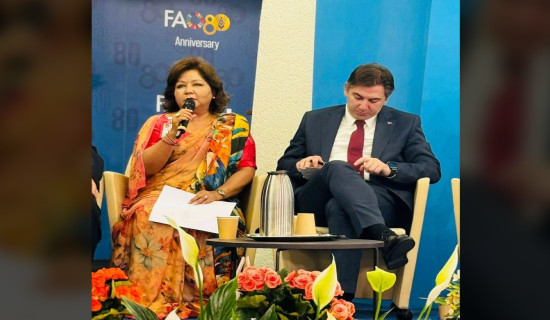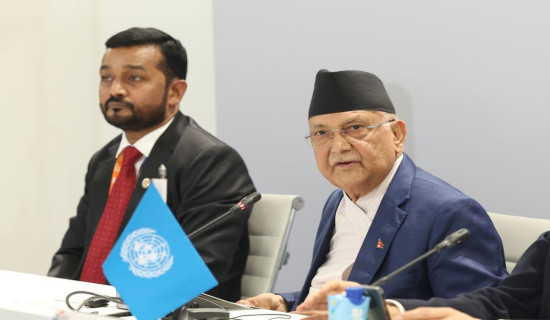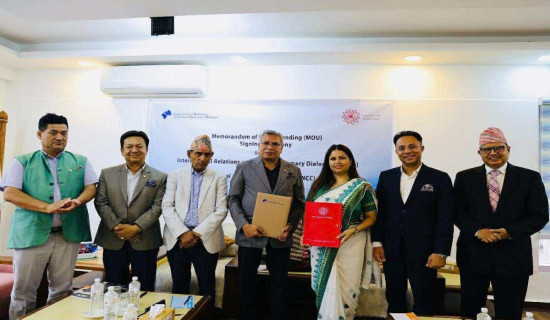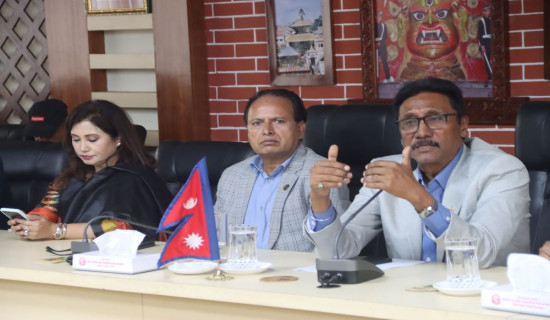- Wednesday, 2 July 2025
Find Diplomatic Outlet
In a positive move, India and Pakistan have agreed to a ceasefire on their escalating military confrontation. There has been a wider sense of concern and trepidation over the start of military confrontation between the two nuclear powers since last Wednesday. Calls for restraint and de-escalation have equally become louder as the fear increases that the ongoing conflict will spiral into a full-fledged war that can have devastating consequences on the countries and the people in the region. Since 1947, they have fought at least three wars, and finding a lasting solution to their prolonged deadlock has become very urgent now.
The current military flare-up began after a terrorist attack that killed 26 innocent people at Pahalgam in India-administered Jammu and Kashmir on April 22. One of the victims was a Nepali citizen. Both countries have been engaged in allegations and denials over the terrorist attack. India has accused Pakistan of harbouring the terrorists but Pakistan has refuted the charges. In retaliation, India launched airstrikes on "terrorist infrastructures” inside Pakistan on May 7. But Pakistan said that 31 civilians were killed in the strike. In response, it has also fired missiles into the Indian territories. Now, both countries stand on the verge of potentially large-scale conflict that might destabilise the peace prevailing in the region.
Meanwhile, Nepal, as a peace-loving nation, has called for de-escalation of tension between the two countries and underlined its dedication to achieving lasting peace and stability within the region. In a press statement issued Thursday, the Ministry of Foreign Affairs expressed its deep concern regarding the escalating tensions. Terming the Pahalgam event a 'barbaric terrorist attack' on innocent tourists, Nepal has said that it stands shoulder to shoulder with India, united in their shared grief and suffering, during this sorrowful time. Nepal has affirmed its commitment to the global fight against terrorism and reiterated that it will not allow any hostile elements to use its soil against its neighbouring countries.
Last Wednesday, Prime Minister KP Sharma Oli held a telephonic conversation with his Indian counterpart Narendra Modi, and reaffirmed Nepal's support to the neighbour in the fight against terrorism. On the same day, Prime Minister Oli chaired a meeting of the National Security Council, and Home Minister Ramesh Lekhak called the National Security Committee meeting. Both meetings decided to increase security surveillance and maintain a high level of alert along the Nepal-India border, airports and other sensitive places to avoid any threat posing activities and trans-border movements.
The other day, Speaker Devraj Ghimire and lawmakers, speaking at the House of Representatives, urged the government to take necessary diplomatic and security measures for the safety of Nepali citizens living in both countries, particularly in India, where thousands of Nepalis stay and work in different areas. Nepal's diplomatic missions in both countries have issued a travel advisory to its nationals and asked them to stay on high alert for security.
Committed to the principle of non-alignment and peaceful co-existence, Nepal always strives for peace, cooperation and mutual understanding between nations. It has maintained amicable relations with both India and Pakistan. In the capacity of the Chair of SAARC, Nepal should take diplomatic initiatives to minimise Indo-Pak tension and promote peace in the region, as both countries are members of the regional forum. The region cannot prosper when it gets engaged in conflict, poverty and backwardness. So, this is high time the concerned sides reach an agreement for peace, with a firm resolve to root out the terrorist threats.
















